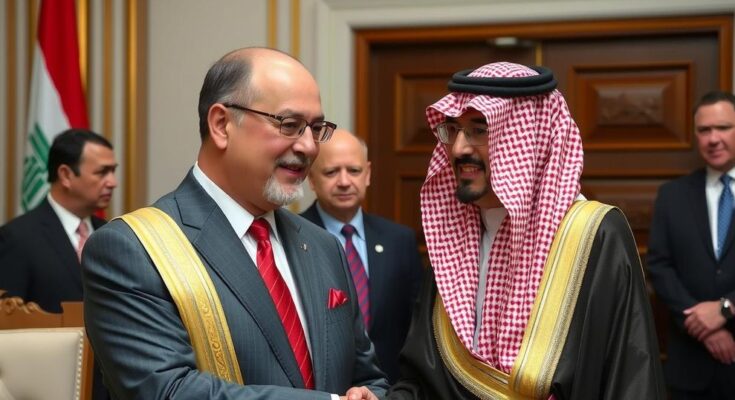General Joseph Aoun was elected as Lebanon’s 14th president, restoring hope after a two-year power vacuum. His presidency comes during dire economic conditions and follows a hard-fought compromise among political factions to ensure governance. Aoun pledges to strengthen military capabilities, stabilize the nation, and manage postwar reconstruction efforts, receiving broad support domestically and internationally in the context of necessary reforms.
On Thursday, General Joseph Aoun was elected as Lebanon’s 14th president, marking a significant moment for the nation after over two years of political stalemate. His election is pivotal as Lebanon faces severe economic struggles and the aftermath of a prolonged conflict with Israel that devastated the country. Aoun, aged 61, has played a vital role in enforcing a ceasefire and the gradual deployment of the Lebanese Army alongside UN forces in the south, a process expected to conclude by January 26.
In a decisive second round of voting, Aoun secured 99 parliamentary votes to become president, succeeding Michel Aoun, whose term concluded in October 2022. This election was the result of a delicate compromise among various political factions in Lebanon, which made concessions to overcome the deadlock that had plagued the nation for months. Aoun’s presidency is expected to provide a pathway for political collaboration amid Lebanon’s sectarian divisions.
In his inaugural address, Aoun emphasized enhancing the military’s strength to secure Lebanon’s borders and combat terrorism, while also pledging to spearhead reconstruction efforts. His military career has equipped him well, allowing him to maintain the army’s neutrality in Lebanon’s complex political landscape, a crucial aspect in a nation often marred by sectarian conflict. Aoun’s previous operations against extremist groups helped solidify his reputation as a unifying leader.
Aoun’s election was enthusiastically received both domestically and internationally, with high-profile figures attending the parliamentary session, showing support from countries such as Saudi Arabia, Qatar, and France. The international community, including the United States and the United Nations, underscored the necessity for a swift formation of a new government to facilitate reforms and stabilize Lebanon’s deteriorating political situation.
General Aoun’s presidency brings forth substantial expectations to restore national stability, especially amid a critical economic crisis described by the World Bank as one of the worst in modern history. The upcoming challenge lies in forming a consensus government that reflects Lebanon’s diverse political spectrum and responds effectively to the population’s needs. Aoun’s success will ultimately depend on building a united front among the different factions within the parliament, and prioritizing the welfare of the Lebanese people to facilitate recovery from long-standing challenges.
The election of General Joseph Aoun as president of Lebanon signals an important shift in the country’s political landscape after a prolonged period of instability marked by a power vacuum. Lebanon has been experiencing severe economic challenges and political deadlock, heightened by the socio-political ramifications of Hezbollah’s military conflicts and subsequent economic collapse. Aoun’s military background and experience in leadership positions offer a potential pathway to addressing these issues and reforming Lebanon’s political institutions. Aoun’s election reflects a compromise needed among differing political factions in a country historically characterized by sectarian divides.
The election of General Joseph Aoun is a crucial development for Lebanon amidst ongoing crises. His background in military leadership and commitment to stabilizing the nation positions him to confront the pressing challenges facing the government. The international community’s support for his presidency emphasizes the collective hope for reforms and unity, while the need for collaboration among Lebanon’s diverse political groups will be essential for success in restoring stability and addressing the economic hardships endured by the population.
Original Source: www.arabnews.com




